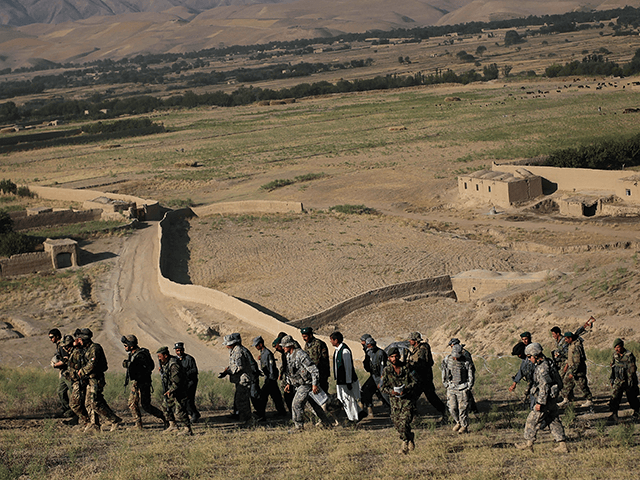During a recent White House briefing on the withdrawal of the United States military from Afghanistan, President Joe Biden told reporters that current immigration law does not allow Afghan civilian translators who aided the U.S. Forces to await their special immigrant visas (SIV) stateside.
As the interpreters risk death at the hands of the Taliban, Biden is facilitating the entry of thousands of economic migrants by immediately canceling the Migrant Protection Protocols (MPP) also known as “Remain in Mexico” program.
After being asked a question during the briefing regarding why the Afghan translators and civilian allies could not be brought to the states in the interim, Biden’s response was firm: “the law doesn’t allow that to happen, and that’s why we are asking the Congress to consider changing the law.”
He added, “but in the meantime, we can guarantee their safety, if they wish to leave, by taking them to third countries and/or, while the wait is taking place to come to–and hopefully, while they are waiting there, to bring them back to the United States, if that’s what they choose to do.”
The Remain in Mexico program and other asylum cooperative agreements, canceled by a Biden executive order, were widely condemned by the left as cruel and hurtful for expecting asylum applicants to wait in a third country. That outrage has yet to extend to the Afghans.
By cancelling the MPP, the administration allowed 28,000 asylum seekers, mostly Central Americans, Venezuelans and Cubans, to enter the United States rather than wait in a third country.
According to the U.S. State Department, the Iraqi and Afghan Special Immigrant Visa is limited to 50 persons per year and is for those who worked with U.S. Armed Forces or under chief of mission authority as a translator or interpreter in Iraq or Afghanistan. The applicant must obtain favorable written recommendation by a general or flag officer within the chain of command. Only those who served at least 12 months in the assisting roles qualify.
The process is lengthy and the current interpreter backlog exceeds 18,000.
Randy Clark is a 32-year veteran of the United States Border Patrol. Prior to his retirement, he served as the Division Chief for Law Enforcement Operations, directing operations for nine Border Patrol Stations within the Del Rio, Texas, Sector. Follow him on Twitter @RandyClarkBBTX.

COMMENTS
Please let us know if you're having issues with commenting.